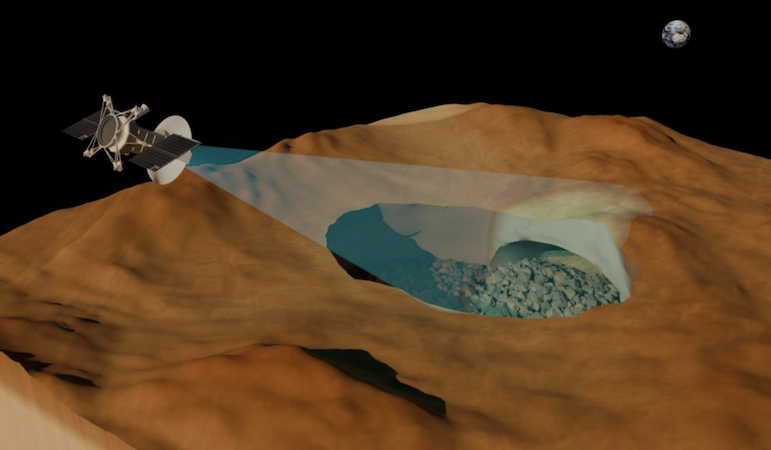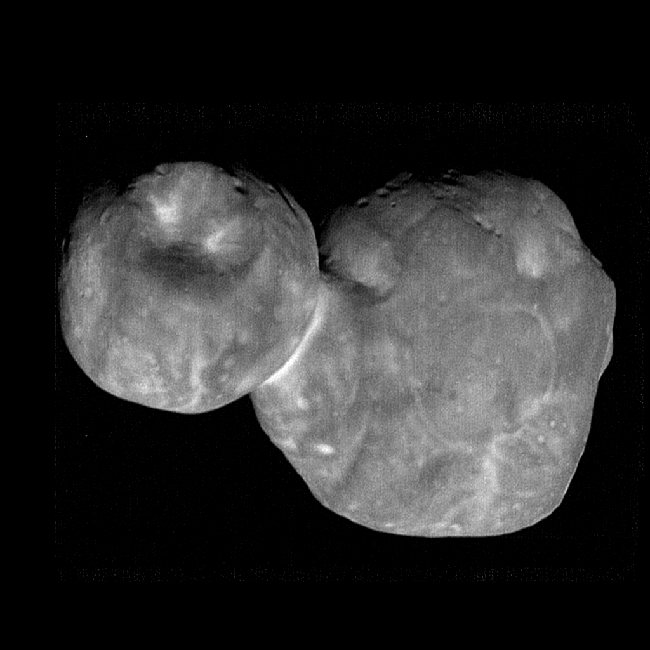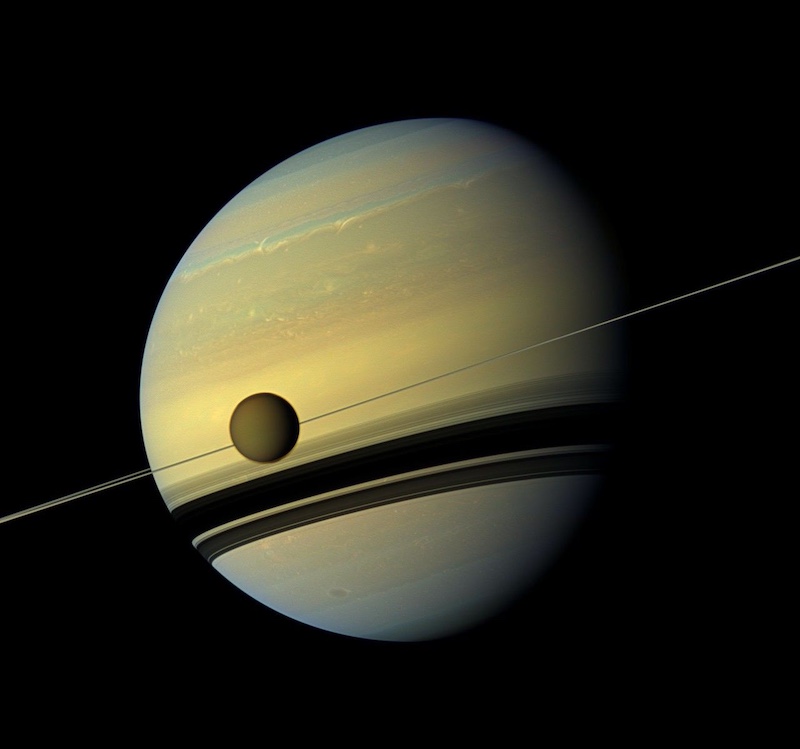Now Reading: See the top 10 stories of 2024 from EarthSky
-
01
See the top 10 stories of 2024 from EarthSky
See the top 10 stories of 2024 from EarthSky


Top 10 stories of 2024
2024 was a fantastic year for observers: many of us saw a total solar eclipse, a bright comet that didn’t require optical aid, plus outbreaks of auroras! It was also a busy year for astronomers and earth scientists, who gave us fascinating new discoveries. And this year, we discovered a record four asteroids just before they impacted harmlessly with our atmosphere. Come along with us as we review our top 10 stories of 2024.
#1 – Asteroid that hit German skies was a rare type
Astronomers discovered a new asteroid on January 21, 2024, just hours before it struck Earth’s atmosphere above Germany. As the little asteroid blazed into a fireball, it dropped fragments onto the countryside below. Meteorite hunters west of Berlin discovered some of the fragments, which scientists analyzed. On February 5, 2024, the SETI Institute said the rock from space was a rare type – an aubrite – which might have originated on Mercury. Read more about the rare asteroid that hit above Germany.
#2 – Comet A3 was the brightest comet in 27 years!
Comet C/2023 A3 Tsuchinshan-ATLAS was the brightest comet in 27 years, the brightest since Hale-Bopp in 1997. In October, observers saw it with its long wispy tail in the evening sky, using just their eyes. Did you see the comet? Read more about the comet and see beautiful images from our community.
#3 – Extreme weather: We haven’t seen the worst yet
Climate change is outpacing our understanding of extreme weather, making it harder to predict future conditions accurately. And climate statistics are outdated as global temperatures rise, leading to unpredicted severe weather events. Plus, the accuracy of models used to anticipate weather extremes is uncertain in today’s rapidly shifting climate. Read more from climate experts.
#4 – Egyptian pyramids new finding: Just add water
How did the ancient builders transport the heavy stones found today in Egyptian pyramids? New research confirmed a now-dry river played a role in the building of the pyramids. Scientists call this river the Ahramat. It was once a branch of the Nile. A major drought, some 4,200 years ago, might have led to its disappearance. Satellite imagery, geophysical surveys and sediment cores confirm the existence of the Ahramat branch and its usage by ancient Egyptians, with many pyramids having causeways ending at the riverbanks of the Ahramat.
#5 – New evidence for Planet 9 at the fringes of our solar system
The case is growing that a Neptune-sized planet – Planet 9 – hides deep in the outskirts of our solar system. In April 2024, researchers argued that a group of little bodies beyond Neptune bunch together due to Planet 9’s gravitational influence. These distant solar system bodies aren’t spread equally in their orbit like the rocky boulders of the asteroid belt. So the researchers think that a larger, more distant object is gravitationally herding them into this pattern. And, in fact, that’s how planet 8 – Neptune – was discovered. Read more about the case for Planet 9.

#6 – Rare dinosaur tracks are longest continuous set of sauropod footprints
Some 150 million years ago, a long-necked dinosaur known as a sauropod took 134 steps that are now etched across a landscape in Colorado. The dinosaur made a loop, tracking back over its prints as if it had taken a look at where it was headed and then changed its mind. Today, these tracks are the longest-known continuous sequence of sauropod footprints in the world. And on April 10, 2024, the Grand Mesa, Uncompahgre and Gunnison National Forests acquired 26 acres (10.5 hectares) in Ouray County, Colorado, containing these footprints. Here’s how you can visit the dino tracks.
#7 – A large fireball blazed over Lake Erie on October 21
Around 7 p.m. EDT (23 UTC) on the evening of October 21, 2024, a large fireball – an exceptionally bright meteor – blazed across the sky over North America near the U.S.-Canada border. And the American Meteor Society was flooded with reports. The witnesses ranged from North Carolina westward to Kentucky, northward to Michigan and eastward to New York. Read more about the Lake Erie fireball.
#8 – Small asteroid hit over the Philippines on September 5
A small asteroid – approximately 3 feet (1 meter) wide – struck Earth’s atmosphere at around 12:39 a.m. PHST, September 5, 2024 (16:39 UTC on September 4, 2024), over Lal-lo, Cayagan, in the Philippines. The International Astronomical Union designated the object 2024 RW1. This was only the 9th time we’ve discovered an asteroid just before it struck us (and it was the 2nd of 4 for the year). See videos of the event here.
#9 – Comet Pons-Brooks’ outbursts made it the Devil Comet
Comet Pons-Brooks became the Devil Comet in 2024 because of outbursts that gave it a horned appearance. Some also described it as looking like the Millennium Falcon from “Star Wars.” It made for great photos from astrophotographers. The comet’s closest approach to the sun was on April 21. See images of the Devil Comet here.
#10 – Trillions of cicadas emerged across parts of the U.S. in 2024
In May and June, two broods of cicadas began emerging across the United States. These red-eyed, chirping, winged insects made a racket, but they were harmless. And they even made for a fairly tasty gumbo. Read more about the cicada swarm and watch a video.
Bottom line: Here are the top 10 stories of 2024. We had a busy year with asteroids hitting Earth’s atmosphere, news about the pyramids, a cicada swarm and more!
The post See the top 10 stories of 2024 from EarthSky first appeared on EarthSky.
Stay Informed With the Latest & Most Important News
Previous Post
Next Post
-
 01Two Black Holes Observed Circling Each Other for the First Time
01Two Black Holes Observed Circling Each Other for the First Time -
 02From Polymerization-Enabled Folding and Assembly to Chemical Evolution: Key Processes for Emergence of Functional Polymers in the Origin of Life
02From Polymerization-Enabled Folding and Assembly to Chemical Evolution: Key Processes for Emergence of Functional Polymers in the Origin of Life -
 03Astronomy 101: From the Sun and Moon to Wormholes and Warp Drive, Key Theories, Discoveries, and Facts about the Universe (The Adams 101 Series)
03Astronomy 101: From the Sun and Moon to Wormholes and Warp Drive, Key Theories, Discoveries, and Facts about the Universe (The Adams 101 Series) -
 04True Anomaly hires former York Space executive as chief operating officer
04True Anomaly hires former York Space executive as chief operating officer -
 05Φsat-2 begins science phase for AI Earth images
05Φsat-2 begins science phase for AI Earth images -
 06Hurricane forecasters are losing 3 key satellites ahead of peak storm season − a meteorologist explains why it matters
06Hurricane forecasters are losing 3 key satellites ahead of peak storm season − a meteorologist explains why it matters -
 07Binary star systems are complex astronomical objects − a new AI approach could pin down their properties quickly
07Binary star systems are complex astronomical objects − a new AI approach could pin down their properties quickly




















